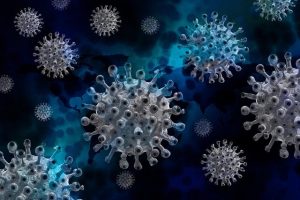By NewsDesk @infectiousdiseasenews
Effective pharmacologic treatments for COVID-19 remains a challenge. The Randomised Evaluation of COVID-19 Therapy (RECOVERY) trial showed dexamethasone, a steroid, improved mortality outcomes for COVID-19 patients in severe stage of disease when oxygen supplementation or mechanical ventilation is required. But for the management of mild and moderate cases, there is lack of treatment, either to prevent disease progression or cut viral transmission.

The COVID-19 clinical characterisation study by MOH specialists and researchers found that for cases admitted to hospitals, 95% had mild illness but about 3.5% subsequently progressed to severe disease. They were mostly of older age (≥51 years) or had underlying co-morbidities such as chronic kidney disease and chronic pulmonary disease that increased their risk for severe disease. However, for high-risk COVID-19 patients, many repurposed antiviral therapies were found ineffective. The World Health Organization (WHO) COVID-19 Solidarity Trial for COVID-19 Treatments (SOLIDARITY) which included Malaysia, found insufficient evidence for the use of remdesivir, hydroxychloroquine, interferon, lopinavir in terms of mortality outcomes. Currently, the Malaysian Consensus Management Guidelines for COVID-19 maintains Favipiravir, as the only antiviral therapy for the management of COVID-19 cases. Even this recommendation may change as more evidence becomes available.
Ivermectin is an FDA-approved anti-parasitic drug widely used for treating several neglected tropical diseases, including onchocerciasis, strongyloidiasis and helminthiases. The “off-label” use of Ivermectin gained global attention due to some promising results by case studies and clinical trials. Yet, the evidence is inconclusive to recommend routine use of Ivermectin for COVID-19. The FDA has not approved Ivermectin for use in treating or preventing Covid-19 in humans, and the WHO only recommends the use of Ivermectin in the setting of clinical trials, in which patients are monitored closely by experienced clinicians and researchers for safety and efficacy. There is an on-going need for adequately powered, well-designed, and well-conducted clinical trials for evidence-based guidance on the role of Ivermectin in the treatment of COVID-19.
Rabies death reported in Sarawak, Malaysia; 3rd case of 2021
Under the circumstances, the Ministry of Health Malaysia and the Institute for Clinical Research (ICR) have initiated a multicentre open-label randomized controlled trial. The Ivermectin Treatment Efficacy in Covid-19 High Risk Patients (I-TECH Study) headed by Infectious Disease (ID) Physician at Hospital Raja Permaisuri Bainun, Ipoh and a team of specialists and Clinical Research Centres (CRC) at 12 MOH hospitals. The trial was approved by Medical Research and Ethics Committee (MREC), MOH on 25 May 2021. The study compares Ivermectin treatment (specific dose with specific duration) with the standard of care alone. The study will enroll 500 subjects from high risk groups aged 50 years and above admitted to MOH hospitals with mild/moderate COVID-19 symptoms (Stage 2-3). The study aims to determine the efficacy of Ivermectin in preventing the progression of COVID-19 to severe disease (Stage 4-5) and in terms of mortality outcomes. ICR has setup a Data Monitoring Board (DMB) consisting of independent ID physicians, clinical trial pharmacists and methodological experts to safeguard the trial patients on the safety and efficacy of the investigation product set by the National Pharmaceutical Regulatory Agency (NPRA).
Malaysia officials respond to ivermectin ‘miracle drug’ claims
The First-Patient-In (FPI) was on 31 May 2021, and to date 8 patients have been enrolled. The study is expected to be completed by September 2021.



2 thoughts on “Malaysia starts Ivermectin trial for high risk COVID-19 patients”